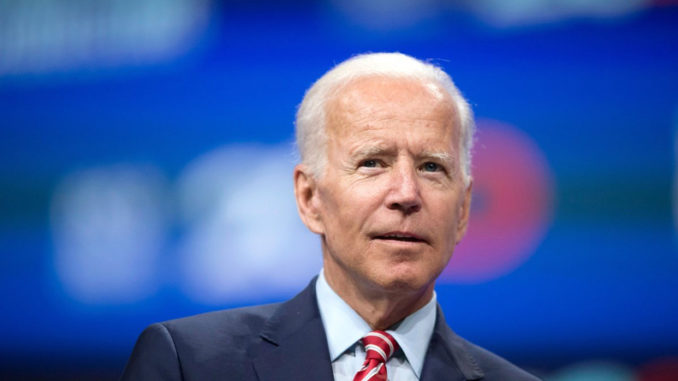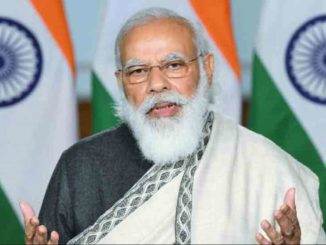

- The Countering America’s Adversaries Through Sanctions Act provides for sanctions for transactions with the Russian defense sector
- For sanctions to be triggered, a defense deal has to meet the threshold of being a ‘significant transaction’
- The US had designated India as a major defense partner in 2016
The inauguration of Joe Biden as the 46th President of the United States, which is scheduled to be held on Wednesday, January 20, 2021 will be watched across the globe as the US President wields such huge authority and influence. Not surprisingly, speculation already abounds in most countries regarding the policies which the Biden Administration will adopt in regard to important issues.
There are undoubtedly some new challenges which the Indian government will face in regard to its relations with the US. There are already some existing problems that still need to be overcome, such as those relating to bilateral trade and restrictions on H1B visas which adversely impact Indian professionals and Indian software companies.
Biden may not immediately reverse some the Trump administration‘s policies which led to these problems, but we should give Prime Minister Narendra Modi‘s team some time for achieving their objectives. In any case, we have better prospects now than we had with Trump who had himself formulated these policies which were causing damage to our interests. Biden has shown that he takes a broader view on issues such as foreign trade as compared to Trump with his ‘America First’ policy.
Views have also been expressed by sections of India’s intelligentsia that that the Biden Administration will not be too favorably disposed towards the present Indian government because of the close Trump-Modi personal bonding as witnessed during the Howdy Modi (September 2019) and Namaste Trump (February 2020) events held in Houston and Ahmedabad respectively.
They feel that this factor has negatively impacted Biden’s perception of Modi, and this in turn will have adverse consequences for Indo-US relations. Modi’s critics also think that Biden will take up a tough position in regard to issues such as Jammu and Kashmir, human rights and minority-related issues in India.
The growth trajectory of Indo-US relations in recent years shows that such fears might be ill-founded. Human rights issues could come up during bilateral discussions, but more likely as they do among friends. Public criticism of the Indian government is not likely. This is because the level of Indo-US bilateral engagement has reached unprecedented levels, with China‘s territorial and economic expansionism serving as a catalyst in this regard.
This is evident from recent meetings like those of the Quad and the 2+2 strategic dialogue held in October 2020. The Indo-US relationship is now inextricably linked in the political as well as economic spheres, and both countries view each other as strategic partners.
Significantly, the US had also designated India as a major defense partner in 2016. It may be noted that the US has signed four defense agreements with India, namely the General Security of Military Information Agreement (GSOMA), Logistics Exchange Memorandum of Agreement (LEMOA), Communications Compatibility and Security Agreement (COMCASA) and Basic Exchange and Cooperation Agreement (BECA). They pave the way for any defense purchases which India needs to make from the US, as well as for transfer of defense-related technology.
Indo-US joint military exercises have also become a significant factor in advancing the strategic relationship. The Malabar Naval Exercise has been held annually since 1992; the Americans suspended the exercises in 1998 following the Pokharan nuclear test by India, but they were resumed again in 2002.
Japan and Australia also participated in the Malabar Exercise held in November 2020, which thus became an extension of the Quad and sent across a clear message to China. In addition, Tiger Triumph, a bilateral tri-service amphibious military exercise involving the armed forces of India and the United States was also held in 2019.
It was the first tri-service military exercise between the two countries. These are just some of the developments which demonstrate how the defense and strategic partnership between India and the US has been growing; given the global challenges, this partnership is the need of the hour.
Therefore, the really important question is whether the strategic partnership will continue smoothly, or could it hit some roadblocks?
It is not improbable that a problem could arise on account of CAATSA (Countering America’s Adversaries Through Sanctions Act) which provides for sanctions for transactions with the Russian defense sector. In September 2018, CAATSA sanctions were imposed on China for purchasing the S-400 missile defense system. Recently, the United States invoked CAATSA against Turkey’s for its purchase of the S-400 missile defense system from Russia.
Earlier, in September 2018, CAATSA sanctions were imposed on China for the very same reason. Assistant Secretary of State Christopher Ford said recently on December 14, “We hope that other countries around the world will also take note that the United States will fully implement CAATSA Section 231 sanctions and that they should avoid further acquisitions of Russian equipment, especially those that could trigger sanctions.”
Naturally, this has raised concerns in India about the possibility of sanctions. After CAATSA was passed in August 2017, India had placed a $5.3 billion-order for five units of the S-400 missile defense system in 2018 and also paid the first instalment of $800 million in 2019.
The United States had offered Terminal High Altitude Area Defense (THAAD) and Patriot Advance Capability (PAC-3) missile defense systems to India in as an alternative to Russian S-400s. However, Indian defense experts felt that it is the S-400 system that meets the operational requirements of India.
The acquisition of the S-400 could jeopardize the possibility of India acquiring certain advanced defense technologies from the US, an opportunity that opened up after the latter designated India as a Major Defense Partner in 2016. It would also severely jolt the bilateral strategic relationship.
Thus, a really serious challenge for India would be to get Biden to give India an exemption from CAATSA for its purchase of the S-400 missile defense system from Russia. The US decides on a case-by-case basis whether to implement sanctions or grant a waiver. For sanctions to be triggered, a defense deal has to meet the threshold of being a ‘significant transaction’ with specifically listed entities of Russian defense or intelligence sectors.
The determination is based on factors like “significance of the transaction to US national security and foreign policy interests, the nature and magnitude of the transaction, and the relation and significance of the transaction to the defense or intelligence sector of the Russian government.”
There is no denying the fact that a S-400 deal is a ‘significant transaction’ and that is why the US has sanctioned Turkey, which is a NATO ally of the US. Naturally, there will be calls, even from within the Biden administration to sanction India also. What can work in India’s favor is that with an ever-expansionist and aggressive China, Biden may need India in his camp.
Moreover, with India being the world’s second largest arms importer, sanctioning India will affect future defense purchases from US manufacturers–something that Biden himself will surely not want.
All said and done, the coming period will be watched with interest by anyone who has followed the upward trajectory of Indo-US relations in recent years. Given the global scenario, it is to be hoped that the Biden Administration will keep the bigger picture in mind and preserve the bilateral strategic relationship and not subject India to CAATSA.
(The author is a retired diplomat. He can be reached at prabhu_dayal70@hotmail.com)
(Courtesy OPOYI)





Be the first to comment